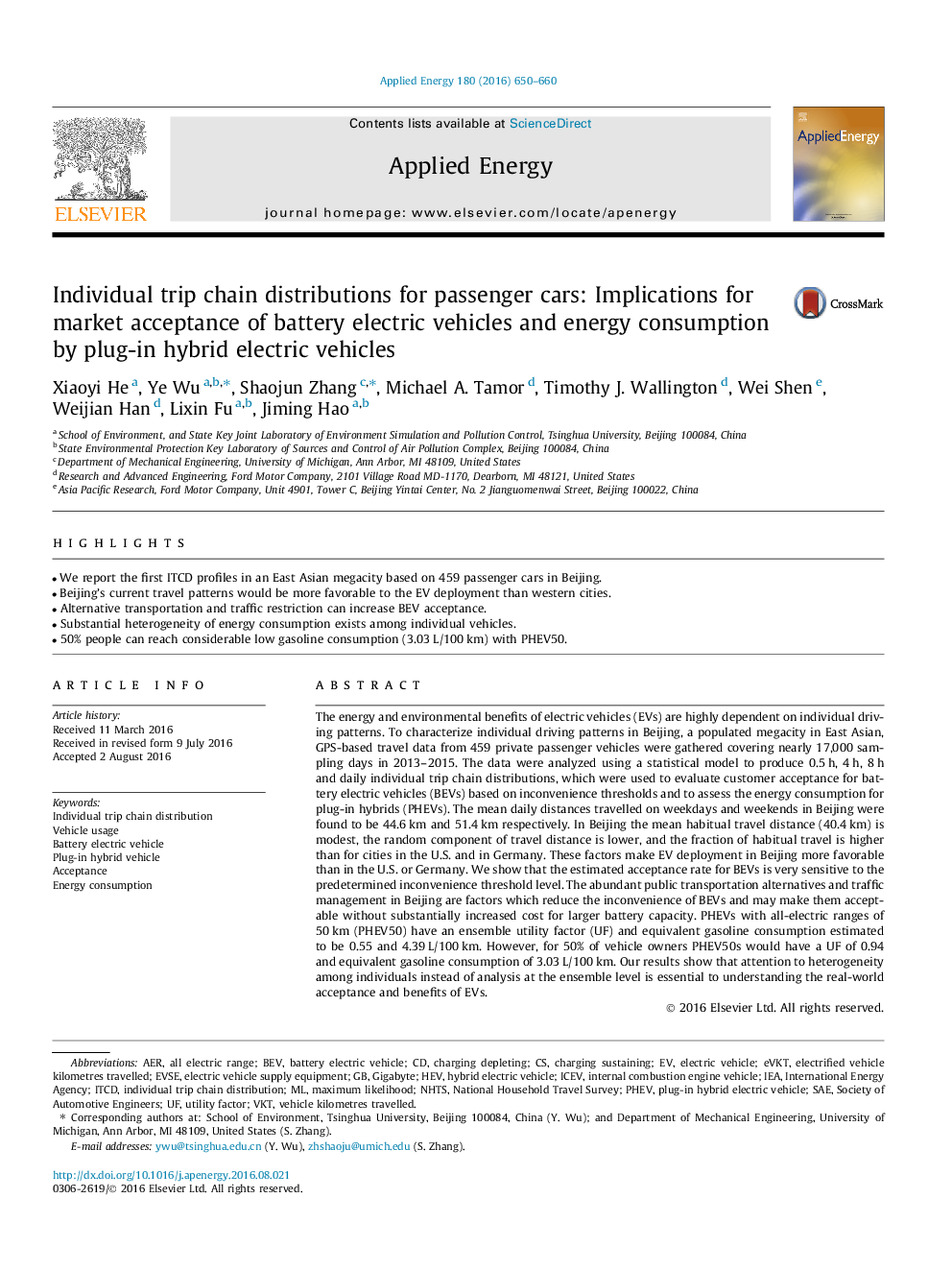| کد مقاله | کد نشریه | سال انتشار | مقاله انگلیسی | نسخه تمام متن |
|---|---|---|---|---|
| 6682262 | 501845 | 2016 | 11 صفحه PDF | دانلود رایگان |
عنوان انگلیسی مقاله ISI
Individual trip chain distributions for passenger cars: Implications for market acceptance of battery electric vehicles and energy consumption by plug-in hybrid electric vehicles
ترجمه فارسی عنوان
توزیع زنجیره های سفر فردی برای اتومبیل های سواری: پیامدهای پذیرش بازار وسایل نقلیه الکتریکی باتری و مصرف انرژی توسط خودروهای الکتریکی هیبریدی پلاگین
دانلود مقاله + سفارش ترجمه
دانلود مقاله ISI انگلیسی
رایگان برای ایرانیان
کلمات کلیدی
HEVIEABEVICEVgigabyteEVSEAER - AIRInternational energy agency - آژانس انرژی بین المللیElectric vehicle supply equipment - تجهیزات تامین برق الکتریکیHybrid electric vehicle - خودرو الکتریکی هیبریدیInternal Combustion Engine Vehicle - خودرو موتور احتراق داخلیElectric Vehicle - خودروالکتریکی Battery electric vehicle - وسیله نقلیه الکتریکی باتری
موضوعات مرتبط
مهندسی و علوم پایه
مهندسی انرژی
مهندسی انرژی و فناوری های برق
چکیده انگلیسی
The energy and environmental benefits of electric vehicles (EVs) are highly dependent on individual driving patterns. To characterize individual driving patterns in Beijing, a populated megacity in East Asian, GPS-based travel data from 459 private passenger vehicles were gathered covering nearly 17,000 sampling days in 2013-2015. The data were analyzed using a statistical model to produce 0.5Â h, 4Â h, 8Â h and daily individual trip chain distributions, which were used to evaluate customer acceptance for battery electric vehicles (BEVs) based on inconvenience thresholds and to assess the energy consumption for plug-in hybrids (PHEVs). The mean daily distances travelled on weekdays and weekends in Beijing were found to be 44.6Â km and 51.4Â km respectively. In Beijing the mean habitual travel distance (40.4Â km) is modest, the random component of travel distance is lower, and the fraction of habitual travel is higher than for cities in the U.S. and in Germany. These factors make EV deployment in Beijing more favorable than in the U.S. or Germany. We show that the estimated acceptance rate for BEVs is very sensitive to the predetermined inconvenience threshold level. The abundant public transportation alternatives and traffic management in Beijing are factors which reduce the inconvenience of BEVs and may make them acceptable without substantially increased cost for larger battery capacity. PHEVs with all-electric ranges of 50Â km (PHEV50) have an ensemble utility factor (UF) and equivalent gasoline consumption estimated to be 0.55 and 4.39Â L/100Â km. However, for 50% of vehicle owners PHEV50s would have a UF of 0.94 and equivalent gasoline consumption of 3.03Â L/100Â km. Our results show that attention to heterogeneity among individuals instead of analysis at the ensemble level is essential to understanding the real-world acceptance and benefits of EVs.
ناشر
Database: Elsevier - ScienceDirect (ساینس دایرکت)
Journal: Applied Energy - Volume 180, 15 October 2016, Pages 650-660
Journal: Applied Energy - Volume 180, 15 October 2016, Pages 650-660
نویسندگان
Xiaoyi He, Ye Wu, Shaojun Zhang, Michael A. Tamor, Timothy J. Wallington, Wei Shen, Weijian Han, Lixin Fu, Jiming Hao,
